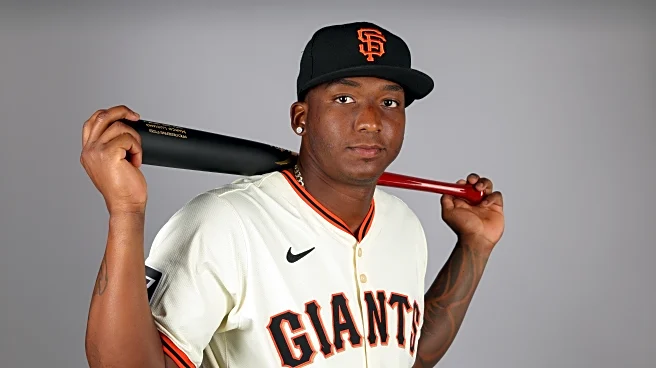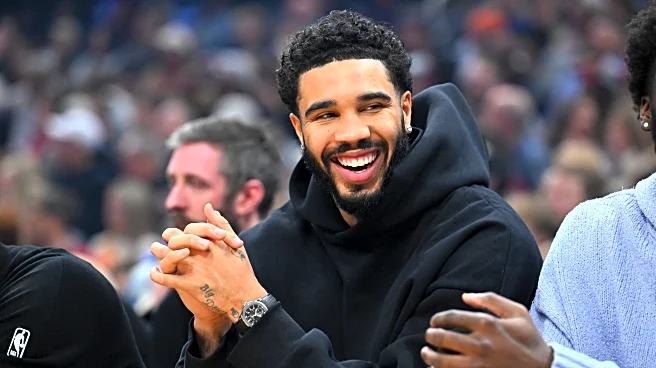What's Happening?
Wyclef Jean, renowned musician and chief creative officer of OpenWav, is spearheading a new initiative aimed at empowering artists by connecting them directly with their fans. At the Brandweek 2025 conference
in Atlanta, Jean highlighted the challenges faced by smaller artists in the current music industry dominated by streaming platforms. OpenWav seeks to restore the direct artist-to-consumer relationship, allowing musicians to maintain control over their intellectual property and create a sustainable income model. The platform enables artists to engage with fans through exclusive content, merchandise, and ticketing, with fans contributing approximately $10 per month. This approach aims to provide artists with a viable alternative to traditional streaming services, which often require a vast fan base to generate significant revenue.
Why It's Important?
The launch of OpenWav represents a significant shift in the music industry, offering artists a more equitable and sustainable way to monetize their work. By bypassing traditional middlemen, artists can retain greater control over their creative output and financial returns. This model is particularly beneficial for emerging artists who struggle to gain visibility and fair compensation on large streaming platforms. The initiative could lead to a more diverse and vibrant music scene, as artists are empowered to pursue their creative visions without the constraints of conventional industry practices. Additionally, it highlights the growing trend of direct-to-consumer models in various sectors, reflecting a broader shift towards personalized and decentralized business approaches.
What's Next?
As OpenWav gains traction, it may prompt other industry players to reconsider their business models and explore similar direct-to-consumer strategies. Artists and fans alike could benefit from increased engagement and collaboration, fostering a more interactive and supportive music community. The platform's success could also inspire innovations in other creative industries, encouraging a move towards more artist-centric approaches. Stakeholders in the music industry, including record labels and streaming services, may need to adapt to these changes to remain competitive and relevant in a rapidly evolving market.
Beyond the Headlines
OpenWav's approach raises important questions about the future of intellectual property rights and the role of technology in reshaping creative industries. By empowering artists to manage their own business operations, the platform challenges traditional notions of artistic production and distribution. This could lead to broader discussions about the ethical implications of technology-driven changes in the arts, as well as the potential for increased democratization and accessibility in creative fields.










